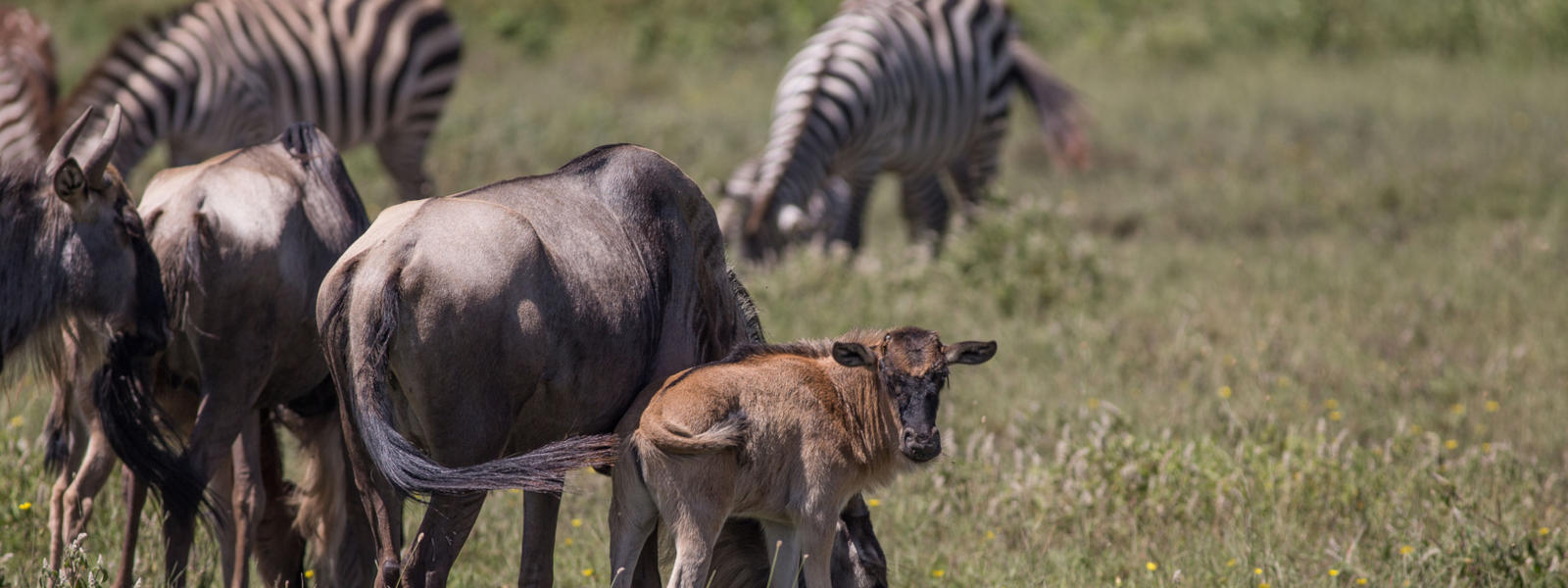This is when everything is green, birds are breeding, flowers are blooming, calving season of the world-renowned Great Wildebeest Migration.
Wildebeest calving occurs from late January to mid March, when more than 80% of the females give birth over a period of a few weeks. Never far away from carnivores, wildebeest calving in the southern Serengeti plains commonly takes place in January and February of every year, and the reason why this major magical move is so important is that the wildebeests will try to give birth to calves in better conditions, which means that they will avoid any predator that could cause a lot of complications in the process.
Sadly, predators are pretty intelligent, and they always head to the south of Serengeti (the places where everything will happen) to take advantage of the vulnerable newborns, making it a very risky natural situation for the heads of the family since they will protect their calves with everything they can!
